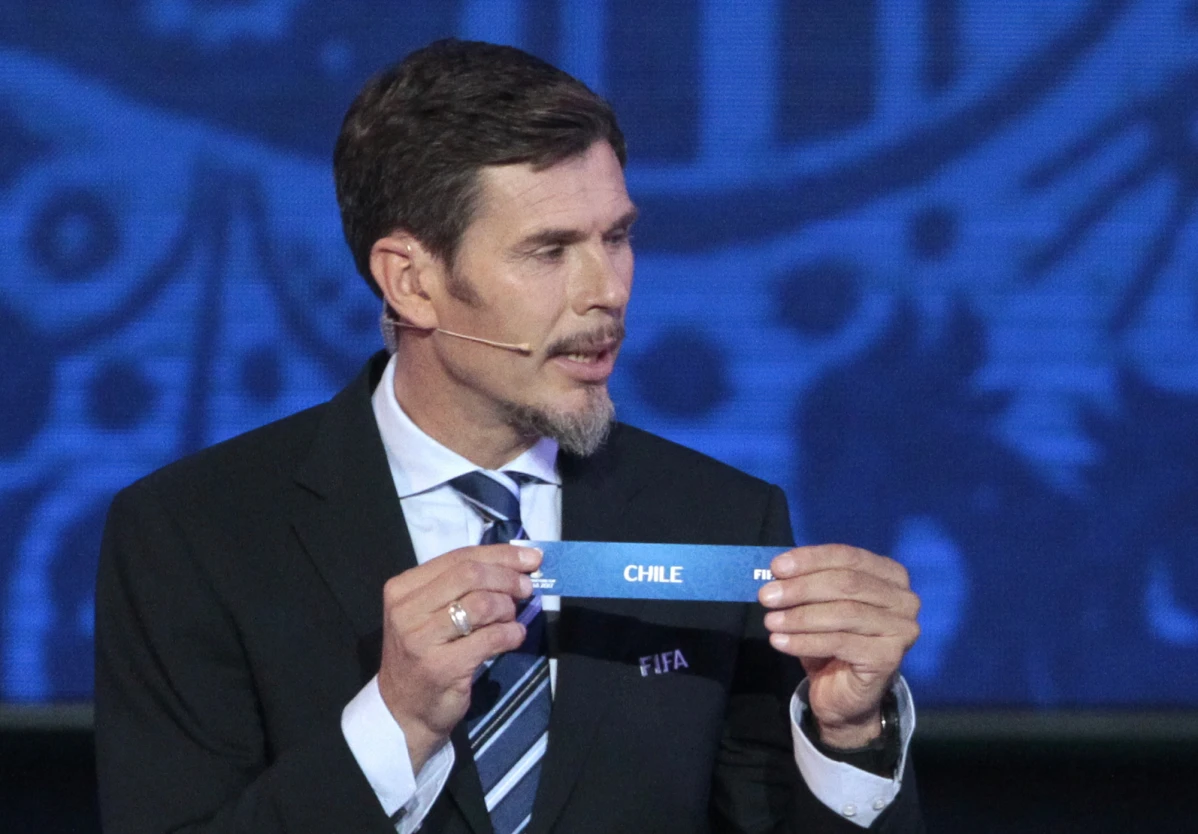Turmoil inside European soccer body UEFA fueled by its president Aleksander Čeferin’s push to change statutes that would let him stay in office longer led to a first exit of a senior manager on Thursday.
Zvonimir Boban, the Croatia and AC Milan great, cited his “total disapproval” for Čeferin’s political power move in his decision to leave his job as UEFA chief of football after three years.
“It is with sorrow, and a heavy heart, I have no option but to leave UEFA,” Boban said in a statement. “I am not trying to be some sort of hero, especially as I am not alone in my thinking here.”
Boban’s departure is the most public show of growing discontent with Čeferin’s leadership since the Slovenian lawyer was re-elected unopposed last April to extend a presidency that started in 2016.
UEFA supported its disgraced former vice president Luis Rubiales of Spain in the furor after incidents at the Women’s World Cup final in August. When Rubiales eventually resigned, UEFA publicly thanked him in a statement that gave no support to the Spanish players.
UEFA then tried to bring Russia youth teams back into European competitions despite its own ban imposed within days of the military invasion of Ukraine. That plan was dropped within two weeks after a swath of member federations continued to insist they would not play games against Russia.
Rifts in UEFA’s executive committee were widened at a Dec. 2 meeting in Hamburg, Germany, on the sidelines of the draw for the men’s 2024 European Championship.
A proposal was made with Čeferin’s approval to amend UEFA statutes that currently limit presidents to 12 years in office — an anti-corruption reform passed in fallout from the American and Swiss federal investigations of corruption in international soccer revealed in 2015. That scandal removed Michel Platini as UEFA president and opened a path to power for Čeferin.
The amendment would clarify that Čeferin’s first three years in office — completing Platini’s mandate through 2019 — would not count against his term limit of 12 years.
If it is approved by UEFA members at their Feb. 8 congress in Paris, Čeferin could be a candidate in 2027 and stay in his $3 million-per-year job as president for 15 years instead of the mandated 12.
Boban was not present in Hamburg when opposition to Čeferin was led by UEFA treasurer David Gill, the former Manchester United CEO. Gill said he opposed the term limit extension on principle even though he himself could benefit from it to stay on as an executive committee member.
Boban’s resignation letter published on Thursday explained he had been unable to change Čeferin’s mind.
“Despite having expressed my deepest concern and total disapproval,” Boban wrote, “the UEFA President does not consider there to be any legal issues with the proposed changes, let alone any moral or ethical ones, and he intends to move forward regardless in pursuit of his personal aspirations.”
The UEFA leader was praised by Boban for having backed reforms early in his presidency but “his shift away from these values is beyond comprehension.”
“I fully appreciate that nothing is ideal, let alone myself, and at times compromises may be necessary,” Boban wrote. “However, being party to this would go against all the principles and values I wholeheartedly believe in and stand for.”
UEFA said in a statement Boban left “by mutual agreement.”
“UEFA extends its gratitude to Mr. Boban for his dedicated service and wishes him the best of luck in his future career endeavors,” the organization based in Nyon, Switzerland, said.
Term limits for leaders in sports and politics are seen as a key measure to curb power cliques and patronage, and Čeferin has even agreed with this in interviews.
“It’s wrong to stay too long,” he told Politico in December 2021. “First of all, you don’t control yourself any more because you think you will be there forever. Second, sooner or later, you think it’s your organization. And, honestly speaking, you need fresh blood, you need people with ideas.”
Čeferin’s reputation reached a peak in 2021 after he helped rally soccer fans and lawmakers to stop a European Super League launched by storied clubs as a breakaway from the UEFA-run Champions League. He later reenacted scenes for a four-part Apple TV series about thwarting the project.
His often combative style also helped to block FIFA plans for new and expanded competitions including playing World Cups every two years instead of four.
Boban was hired by UEFA into Čeferin’s inner circle after leaving an executive position at his former club Milan. Boban previously was at FIFA as deputy secretary general for soccer issues under its president Gianni Infantino.
Infantino, like Čeferin, also came to power in 2016 in the aftermath of the FIFA scandal that removed its then-president Sepp Blatter. Infantino had been UEFA general secretary for more than six years under Platini and stepped up as a candidate when his boss was implicated in the scandal.
Infantino already is secure in his ability to stay in office until 2031 despite a 12-year limit on presidents. FIFA already changed its statutes to ensure his 2016-19 period replacing Blatter does not count toward his 12 years.
Like at UEFA, some International Olympic Committee members also want their president Thomas Bach to stay beyond the 12 years mandated after the Salt Lake City bidding corruption scandal 25 years ago.
Bach has declined to damp down speculation on an issue that could also be put to the vote in Paris, where the IOC meets from July 23-24 on the eve of the Olympics.
Credit: AP


